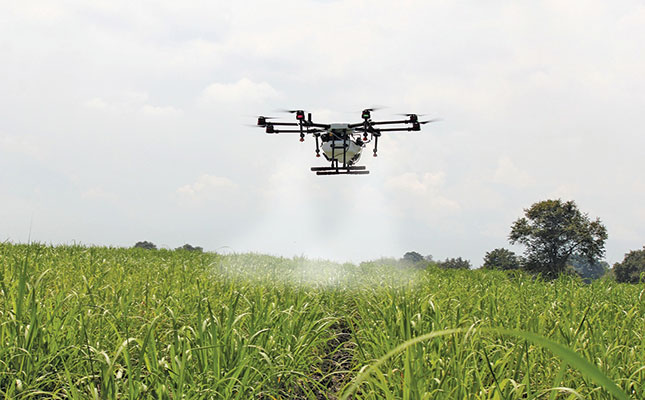
Photo: Pixabay
He was commenting on the recent ‘Robotics in Agriculture’ report by GlobalData, an international data and analytics company, which showed that global field robot sales had hit US$1,1 billion (about R19 billion) in 2020 and were projected to reach US$11 billion (R189 billion) by 2030.
The report indicated that the commercial drone market, which formed part of this industry, would overtake military drones and become the largest segment of the drone market by revenue over the next few years, with agricultural drones being a key driver.
READ A bright future for drones on farms
According to the report, agricultural drones were unmanned aerial vehicles used in agriculture for yield optimisation and monitoring.
“Locally, [agricultural] drones were first used for rural safety reasons, but the uses are evolving to [areas] such as crop surveillance,” Visser told Farmer’s Weekly.
Some farmers in the Kalahari even used drones to survey watering holes, saving them thousands of rands in fuel, he said.
Willie Clack, chairperson of the National Stock Theft Prevention Forum, said many livestock farmers also used drones to keep a tally of their animals.
“Some [drones] physically count [each] animal as they fly overhead, while others take a picture and then count the animals on the static photograph.
READ New-generation crop-spraying drones
“The use of drones on farms will definitely help with crime prevention and criminal prosecution,” Clack said.
Christian Giesel, Syngenta South Africa’s head of marketing, said drone technology had not yet developed to a level where it could be used accurately and reliably for crop spraying.
“Current legislation doesn’t accommodate the application [of chemicals by drones],” he said, adding that Syngenta agreed with CropLife South Africa’s official stance that drones could not yet be used to apply agrochemicals, as the water volumes used by drones were significantly lower than what was required by the formulations.
Giesel said another concern was that the coverage of such applications tended to be “very patchy”, due to the low volumes applied per hectare.
However, Syngenta had secured the services of a specialist to study the feasibility of these applications in the future. Giesel said he believed it was simply a matter of time before drones would be used to apply chemicals on a large scale.
Rachel Foster Jones, thematic analyst at GlobalData, said in a recent statement that the drone industry in China was the largest in the world, and that that country was leading the global industry in agricultural drone innovation.










